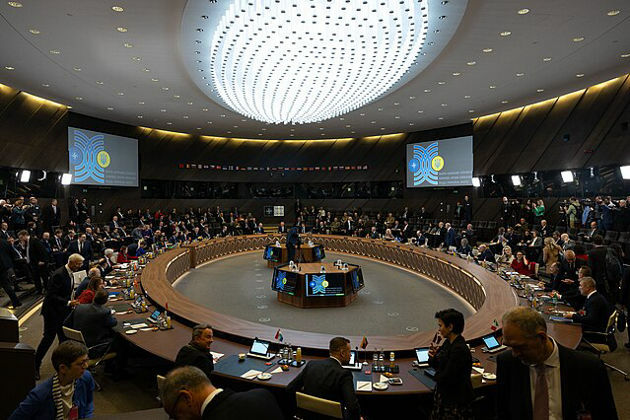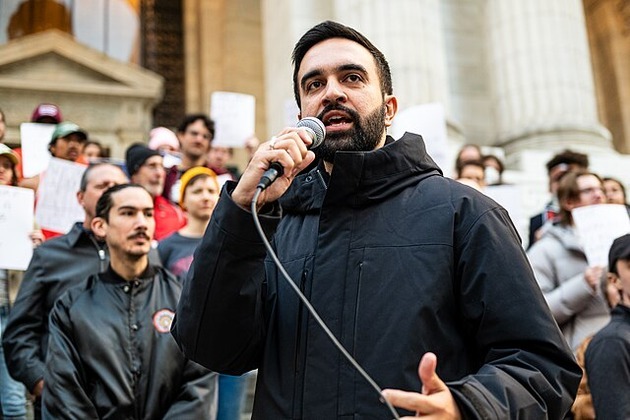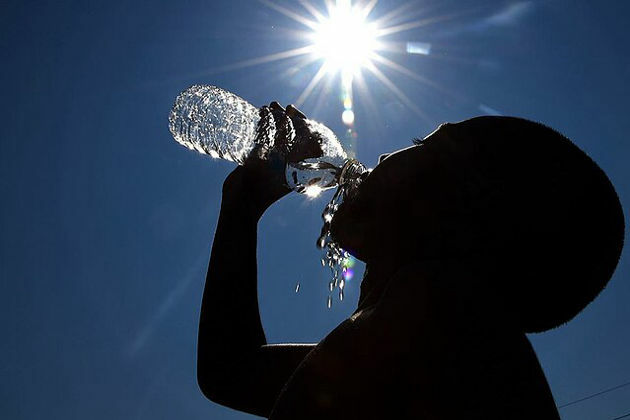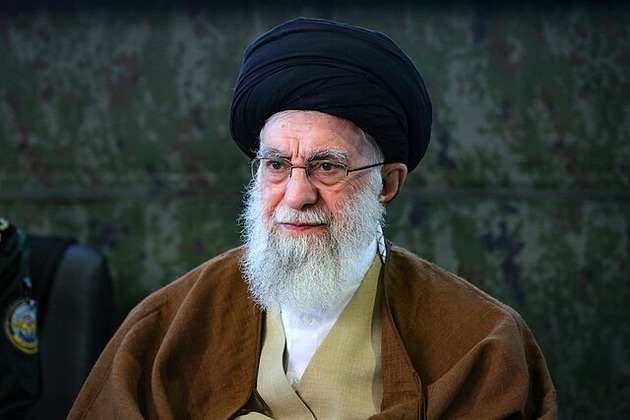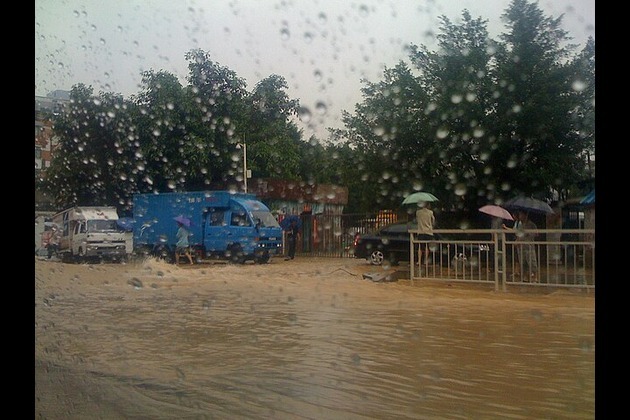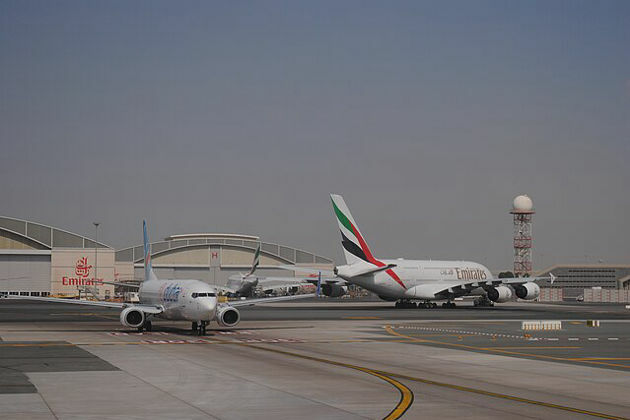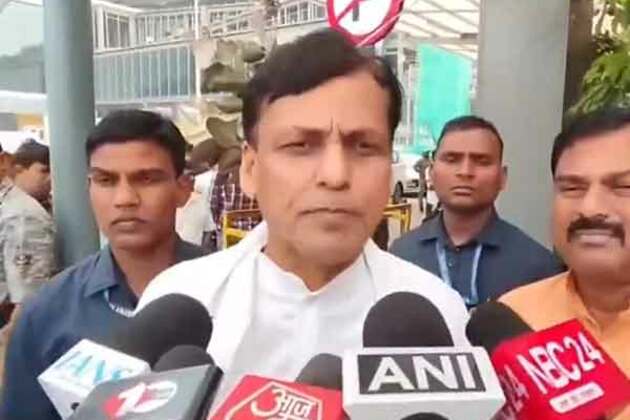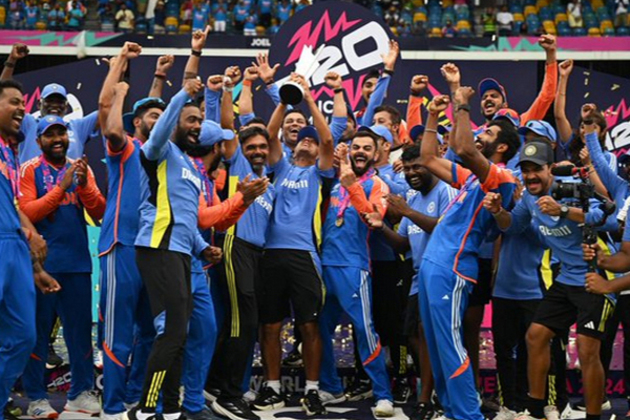Pakistan: how an economic crisis has sent prices rocketing
The Conversation
04 Jul 2022, 20:08 GMT+10
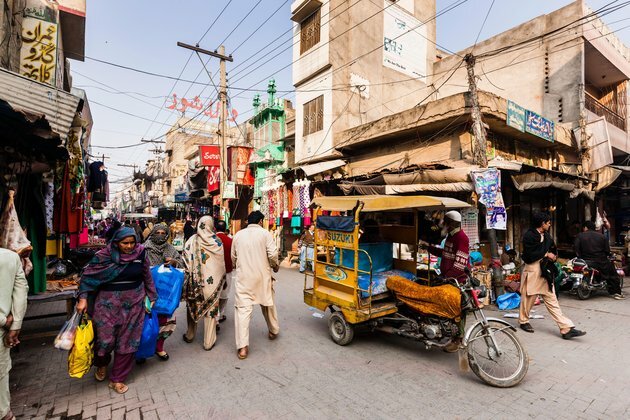
Pakistan's current economic struggles exemplify the little fires everywhere set alight across the global economy by a war during a pandemic. Like others in countries dependent on imported commodities - for example Ghana and Sri Lanka - Pakistanis are seeing food and fuel prices soar. Foreign exchange reserves - used to pay for imports such as food and fuel - have shrunk.
Pakistan is using up its foreign exchange reserves more quickly than previously anticipated because prices of foreign goods are going up. If the situation doesn't change, the country faces bankruptcy.
In April, a litre of petrol cost about 150 rupees (Pound 0.60), but by July 1 the price had risen to nearly 250 rupees. And the price of cooking oil increased by 40% just between May and June. At present the country has only enough foreign currency to pay for five weeks of imports. Pakistan is heavily dependent on imported fuel and cooking oil, but also on machinery and food grains from overseas.
All of this has made day-to-day activities more challenging. Power outages are not uncommon in the country, even when the economy is strong - they become frequent and long when the economy is under duress. This happens because energy companies struggle to operate when the costs of power generation are higher than the revenue they collect. Over the past few weeks, residents of major cities have had to go without electricity in their homes for as much as 10 hours a day - in rural areas for even more. The discomfort of the public is compounded by an intense heatwave in many parts of south Asia that has caused temperatures in some places to hit 51℃.
Relying on imports
Foreign exchange reserves with the Pakistan central bank currently stand at US$10.3 billion, (Pound 8.4 billion). This is a sharp drop from US$16.6 billion in January 2022. Though recently bolstered by Chinese bank lending, reserve levels have been volatile since late April 2022, when a political crisis resulted in the ousting of the prime minister, Imran Khan.
In Pakistan imports are far higher than exports. To preserve foreign currency, an early measure taken by the newly appointed government in May 2022 was to ban many types of imported goods deemed non-essential luxury items. The list included chocolate, nappies, pet food and tampons, but has been amended. Initially there were concerns that pets and livestock would be malnourished because of this ban, and that chocolate would be confiscated at international airports. And that menstruating women would not have access to sanitary pads. Because of public pressure, the list has been amended and clarified. Chocolate is no longer being seized, pet food taken off the list, and sanitary pads are being manufactured domestically.
A more recent intervention, intended as a placid nudge but widely derided, is a cabinet minister's suggestion that individuals should drink fewer cups of tea. The drink is ubiquitous in Pakistan, which is the largest global importer of tea by a considerable margin. It is considered one of life's simple pleasures in a country troubled by power outages and expensive basic food items.
Consternation over the petty politics of "austeri-tea" can deflect from larger, more compelling issues. These are recurrent and arise from the position of Pakistan, and other fragile, externally indebted economies in a global system of currency hierarchies.
Poor countries cannot borrow in their own currency, but need to use one of the major currencies being traded on the international exchanges. The US dollar is the most used currency, while other dominant currencies include the British pound and the euro. These "hard" currencies are those which indebted countries must regularly purchase to pay for imports and to repay and service the loans they owe to private bondholders, international financial institutions and lenders.
Read more: Pakistan: new government must tackle police corruption and killings
Before he was ousted, Khan tried to retain public support as prime minister by resisting demands from the International Monetary Fund (IMF) to increases taxes and remove subsidies. So, by not taking steps such as making fuel more expensive, the Khan government delayed inflows of external finance. This weakened Pakistan's reserves and made it difficult to maintain the value of the rupee. As the chasm between the dollar and rupee grew, the popularity of the government fell.
Global sanctions on Russia and Iran complicate Pakistan's economic situation. Khan was frustrated at not being able to use a supply of relatively cheap Russian oil because of international pressure over Ukraine. Given the need for drastic measures, Pakistan's government may now follow in the footsteps of Sri Lanka and turn to Russia for cheap fuel.
International tensions
Pakistan has also refrained from importing oil from neighbouring Iran. Smuggled Iranian oil remains attractive to those living near the border. Fuel and energy cooperation between Pakistan and Iran is an especially prickly issue given opposition from the US and Saudi Arabia, another nation that has often financially assisted Pakistan.
To avert bankruptcy - and to continue buying food and fuel - Pakistan is now awaiting assistance from the International Monetary Fund (IMF). This Washington DC-based institution has rescued crisis-ridden economies on many occasions. In exchange, recipient governments must commit to policy reforms, that are often unpopular with the public.
Over the next few weeks, the IMF is likely to step in and commit to a bailout of approximately US$1.85 billion. If, and when, this happens, the exchange rate between the Pakistan rupee and US dollar will stabilise. Given that the dollar has risen more than 15% against the rupee since January 2022, policy makers will welcome a stronger Pakistani currency to calm surging prices.
But the heavy costs of a deal with the IMF have already driven a cost-of-living crisis as fuel subsidies have been sharply withdrawn and made food and transport unaffordable for many. Tax increases have also added to day-to-day pressures.
Currency issues and cost-of-living crises in Pakistan are inextricably linked. A more expensive dollar makes fuel more expensive, and these price increases are quickly reflected in daily essentials. Given that Pakistanis spend more than 40% of their income on food, inflation makes large segments of the population marginalised and vulnerable.
Unless exports drastically increase in coming years, Pakistan's economy will remain precarious and high prices will remain a threat. Given this situation, financial assistance is the only way to overcome crises. Unfortunately this tends to come with financial or political strings attached.
Author: Juvaria Jafri - Research Associate, University of Cambridge 
 Share
Share
 Tweet
Tweet
 Share
Share
 Flip
Flip
 Email
Email
Watch latest videos
Subscribe and Follow
Get a daily dose of Kolkata Sun news through our daily email, its complimentary and keeps you fully up to date with world and business news as well.
News RELEASES
Publish news of your business, community or sports group, personnel appointments, major event and more by submitting a news release to Kolkata Sun.
More InformationInternational
SectionAlliance eyes major military buildup to counter Russia
THE HAGUE, Netherlands: NATO is pressing ahead with a sweeping new defense spending target, calling on all 32 member nations to commit...
Mamdani leads NYC mayoral race in stunning upset over Cuomo
NEW YORK, U.S.: A political newcomer is on the verge of reshaping New York City politics. Zohran Mamdani, a 33-year-old state assemblyman...
Millions endure dangerous US temperatures, heat alert issued
MADISON, Wisconsin: Tens of millions of residents across the Midwest and East Coast faced dangerously high temperatures over the weekend...
Multiple Israeli troops die as armored personnel carrier is blown up in Gaza
KHAN YOUNIS, Gaza - Seven Israeli soldiers were killed in a large explosion in southern Gaza's Khan Younis area on Tuesday night,...
Khamenei remains in hiding as clerics fast-track succession plans
DUBAI, U.A.E.: Iran's top clerics are quietly accelerating succession plans for Supreme Leader Ayatollah Ali Khamenei, who was threatened...
Monsoon floods batter China, raising climate concerns
BEIJING, China: Extreme weather is once again testing China's resilience, as intensifying monsoon rains trigger floods across major...
India
SectionHundreds of flights worldwide were grounded over Israel-US-Iran attacks
NEW YORK CITY, New York: The escalation of conflict between Israel and Iran, compounded by the United States' military involvement,...
"Australia had ruined our...": Rohit Sharma on iconic T20 WC 2024 win against 50-over champions
Mumbai (Maharashtra) [India], June 27 (ANI): India ODI skipper Rohit Sharma opened up and shared his thoughts on the rivalry between...
"Preparing for World Championships in September": Avinash Sable after Asian Athletics Championship success
By Vipul Kashyap Bengaluru (Karnataka) [India], June 27 (ANI): Following the Asian Athletics Championship 2025 success at Gumi, South...
Delhi HC grants interim bail to Jitender Gogi's co-accused on grounds of wife's surgery
New Delhi [India], June 27 (ANI): The Delhi High Court has granted 15 days interim bail to Prince alias Sandeep, who is a co-accused...
Union MoS Nityanand Rai demands apology from Kharge for calling Bihar a "small" state
New Delhi [India], June 26 (ANI): Union Minister of State for Home Affairs Nityanand Rai has demanded an apology from Congress President...
From the "ideal T20 ball" to "game-changer knock", Rohit opens up on T20 WC 2024 win
Mumbai (Maharashtra) [India], June 26 (ANI): India's T20 World Cup winning skipper Rohit Sharma capturing the short format's biggest...

